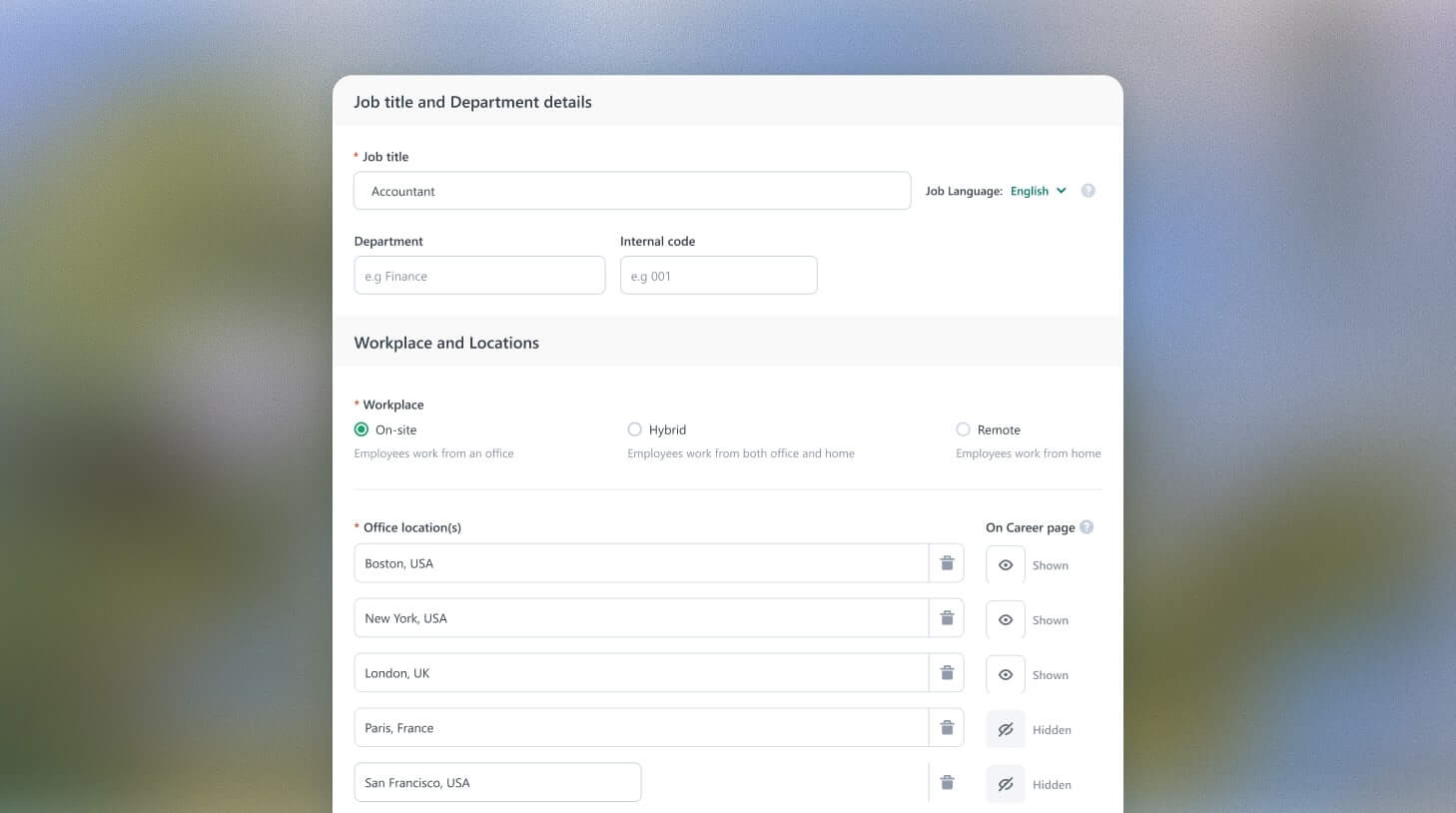Clean out those HR cobwebs: 6 outdated practices to get rid of
It's time to identify and discard those outdated HR practices if you want to be respected as an HR professional. Learn what they are and what you can do instead.

During this spooky time of year, we put up cobwebs, but let’s face it: Several HR practices need to be stomped out like that spider scuttling across the floor. (Note: No actual spiders were harmed in the writing of this article.)
Sometimes, companies don’t follow “best practices”. They follow “old practices” and don’t think about why.
Here are some old cobweb-covered practices we should remove to improve businesses.
Contents
1. ‘What is your current salary?’
This question still appears on job applications, and recruiters still ask it when screening candidates. Several states have outlawed this question, but not everyone has the message.
Someone’s current salary shouldn’t reflect the salary of our new position. Salaries should be based on market rates. When you focus any part of the hiring process on the candidate’s previous salary, you help perpetuate salary inequities.
What you should do instead
Say, “The salary range for this position is $X-$Y, depending on experience. Does that work for you, or will it scare you away?”
2. ‘Sorry, we have a maximum internal raise of 10%.’
You don’t want salaries to run away from you, so many companies have a maximum raise percentage that they will give to internal candidates. It doesn’t matter if the raise doesn’t bring the person into the market rate for the position; companies won’t provide higher raises.
This is what we call penny-wise and pound-foolish. Saving a few dollars by not paying someone the market rate today increases the chance that this person will take their new title and parlay that into a job at your competitor where they are willing to pay the market rate.
What you should do instead
Treat internal candidates the same as you would external candidates regarding salary. Don’t have a maximum salary increase percent. Everyone gets the market rate salary, even if it’s a 50% increase – now that’s a treat that’s much better than a trick!
3. ‘No, that won’t be possible.’
This cobweb hangs over many an HR director’s door. It’s a reflexive response to just about every request someone makes. But the reality is a lot of things are possible, and the default should be an effort to make things happen.
Of course, if something is illegal, the answer stands, but otherwise, finding a solution should be an HR priority.
What you should do instead
Look for a solution. Sure, you can’t double someone’s salary just because they ask, but you can tell them what they need to do to increase their earning power. When someone wants an extra month of vacation, it won’t be possible, but maybe you can find a solution that helps them get what they need–unpaid leave or remote work.
Just banish the reflexive no, like you’d send a vampire back to their coffin.
4. ‘A customer complained, so we have to write you up.’
How some HR people and some company policies treat customer complaints as infallible is a way to undermine morale. The customer is not always right, and treating the customer that way just makes for worse customers.
What you should do instead
Investigate the customer complaint. If the employee followed policy, then no punishment. Suppose the customer was rude, not punished. You should praise employees who follow policy politely, even if the customer doesn’t like it.
Change the procedures if you want a different outcome. Don’t let customer complaints cast a dark shadow over your employees.
5. ‘Congratulations on the promotion! You’re now a manager. Get to work!’
Many people get promoted to management because they are good at day-to-day work. Managing is a very different skill set.
Just assuming your new managers know how to manage is setting them up for failure and their departments for misery.
What you should do instead
Give managers management training! Teach them how to give feedback, how to follow fundamental employment law, how to write an employee review, and how to treat employees fairly.
Yes, that takes work, but the payoff will be fantastic, like a magical transformation from a regular employee to a skilled manager.
Related: Employee development and the Peter Principle: Why your managers keep messing up
6. Marijuana testing for non-safety positions
Of course, employees shouldn’t be high at work, but they shouldn’t be drunk either, and yet you don’t prohibit off-hours drinking. Finding qualified employees is hard enough without eliminating everyone who uses marijuana recreationally.
Sure, if it’s a safety-related job, or there are federal requirements for a drug-free workplace, then keep testing.
What you should do instead
Focus on how employees behave at the office. Don’t worry about their time away from work. You don’t want to turn your workplace into a scary place for them.
Sweep the old stuff out
If you can’t explain why you are doing something, you should probably reconsider doing it. Get rid of those old cobweb-filled practices and replace them with something less spooky.
Frequently asked questions
- Why shouldn't HR ask about a candidate's current salary during recruitment?
- The current salary question can perpetuate salary inequities. Instead, salary should be based on market rates and the position’s value.
- Is there a cap on the salary raise percentage for internal candidates?
- Many companies set a maximum raise percentage for internal candidates, often overlooking market rates. However, it's advisable to treat internal candidates like external ones, ensuring everyone gets a market rate salary.
- Why is a reflexive "no" to requests a problem in HR?
- A default "no" limits HR's problem-solving potential and can stifle employee morale. It's essential to explore solutions and possibilities rather than quickly shutting down ideas.
- How should HR handle customer complaints about employees?
- HR should investigate customer complaints, ensuring that employees aren't unfairly penalized for upholding company policies or facing rude customers. The focus should be on proper procedures and employee support.
- What's the issue with promoting an employee to a manager without additional training?
- Management requires a distinct skill set. Simply promoting someone without providing the necessary managerial training can set them up for failure.




